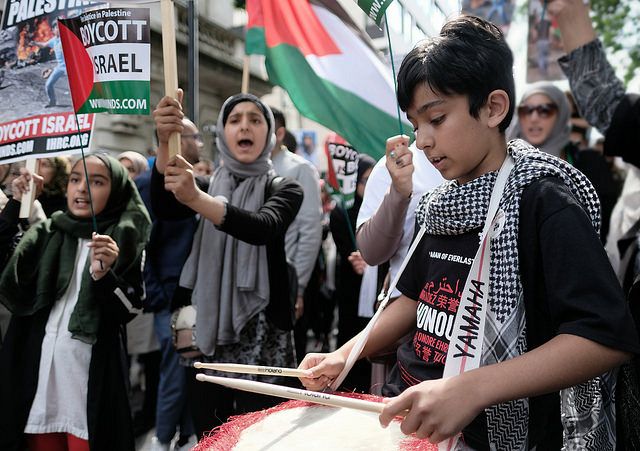Palestine has faced unrest and foreign occupation for years now. But this hasn’t stopped civil society and organisations from delivering important services and engaging in the national project of building a free state in Palestine.
Palestinian civil society has actively contributed to relief, development and the empowering process of participatory engagement since the beginning of the “Palestine cause”, also referred to as the Israel-Palestine conflict. They have done so despite several social, cultural, economic and political challenges.
These organisations have coordinated action, with the intention of securing equal participation for vulnerable groups, stopping restrictions on public freedom and protecting women from both political exclusion and domestic violence.
They aim to activate grassroots networks, to both assist and encourage various groups to support the endeavours of community participation.
A primary objective is to ensure the accountability of government. They also promote the reporting of discrimination of marginalised groups of youth and women. As a part of empowering young social participation, many organisations as the Society Voice Foundation – which I founded and worked for – aims at promoting freedom of expression of vulnerable groups through various tools of awareness, including media and advocacy campaigns.
Many young Palestinians challenging violence and foreign occupation have paid a huge price, either losing their families or their lives. This is particularly true for Palestinian women. It’s not uncommon for them to live in dreadful circumstances, due to oppressive social, legal and cultural norms, weak state institutions, the prevalence of violence as well as political division. After all, women’s movements have been comprehensively challenged by the violence of the Israeli occupation in the Occupied Palestinian Territories (OPT) since 1967.
Young people, in particular, have been subject to an unprecedented state of poor public freedom and socio-political deadlock – at all levels – created by the paralysed political system, social and geographic division and harsh economic life.
Hanan Al Hroub, a refugee from a camp in Bethlehem city in the occupied West Bank, provides an excellent example of activism and resilience. She won the Global Teacher Prize for teaching excellence in 2016. She competed against 8,000 international applicants to win the $1 million prize, presented to her at a UAE ceremony.
Al Hroub grew up in a refugee cam and her family suffered from the violence of occupation when her husband, Omar, and two of her daughters were shot at by Israeli soldiers at a checkpoint near Bethlehem. Omar, a lawyer, was injured and the girls became traumatised. She won the global prize because of the values she instilled in her students.
These positively influenced the children in her classroom. She employed a technique of “play and learn” to provide peace, harmony and security for her students.
At first, these students were often disruptive, unstable and manipulative. Some engaged in violent acts themselves. This was owing to the harms of protracted foreign occupation. Al Hroub employed these techniques of playing to help treat her daughters' trauma, as their own teachers were not equipped to help them.
Further, local Palestinian NGOs and CSOs have suffered from aid cuts. Generally, foreign aid is essential for programs to run effectively. These cuts have made it harder for civil society organisations (CSOs) and non-governmental organisations (NGOs) to respond to new challenges as they struggle to meet Palestinian peoples’ needs and demands efficiently.
This issue is intensified by the fact that resources are sorely lacking after years of blockades. Since the cuts, United Nations Relief and Works Agency for Palestinian Refugees (UNRWA), for example, terminated the contracts of hundreds of emergency employees who worked for more years in the Gaza Strip.
Engagement of civil society has made a crucial contribution to Palestine’s survival by emphasising the priorities of civil rights and public freedom. The active civil society movement, working for marginalised and vulnerable people, readily acknowledges the risks that might physically threaten the leaders of the community actions. CSOs, for example, suffer from negative socio-political developments, including any challenges to civil society from state and non-state actors and the threat of foreign occupation.
These are the mountainous challenges that civil society must overcome.
Dr Ibrahim Natil is a lecturer at Dublin City University. He is a human rights campaigner and was a nominee for the Tällberg Foundation Global Leadership. You can follow Dr Natil on Twitter @Natilibrahim.
 This work is licensed under a Creative Commons Attribution-NonCommercial-NoDerivs 3.0 Australia License
This work is licensed under a Creative Commons Attribution-NonCommercial-NoDerivs 3.0 Australia License
Support independent journalism Subscribe to IA.












